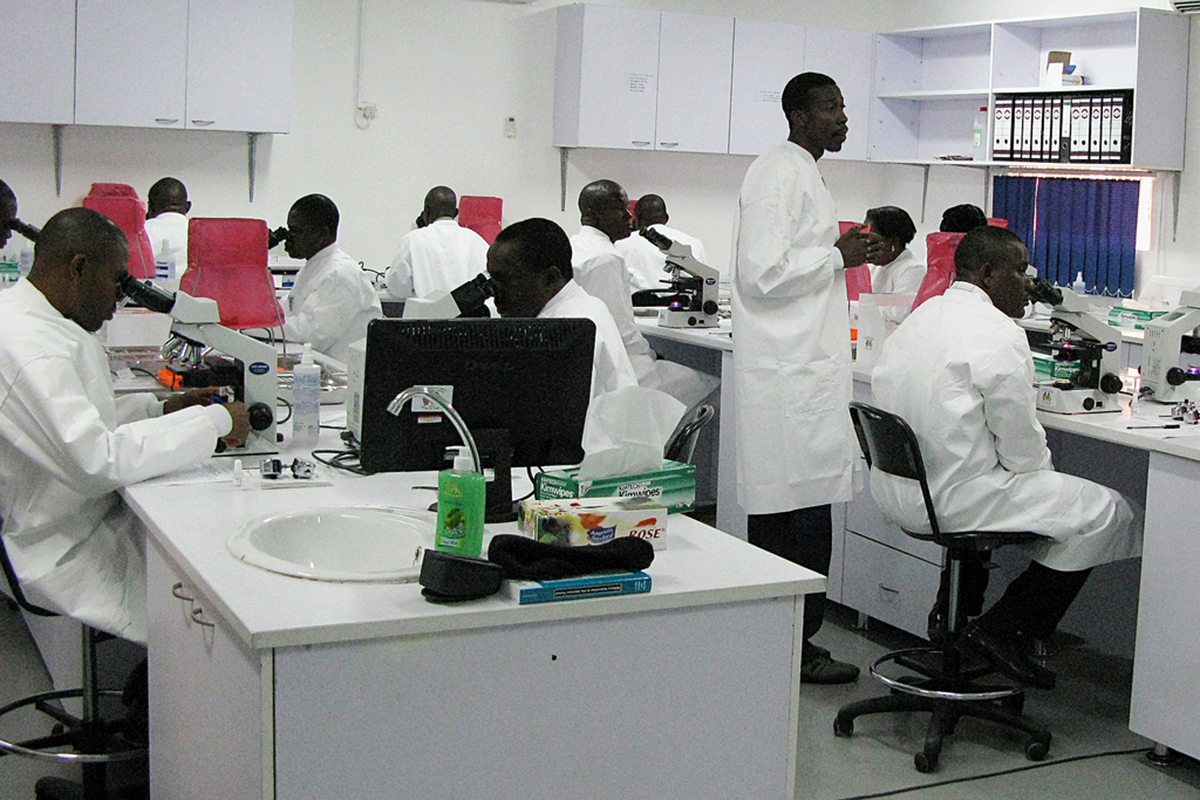Table of Contents
How do you teach your immune system to recognise a shape-shifter?
You don't.
You look for another way.
Working on a drug to treat malaria, scientists at Dundee University discovered something surprising: their drug, known only by its code name, DDD107498, has the abillity to attack malaria parasites during eachs tage of their lifecycle. The drug attacks a protein that malaria pasrasites use to transmit genetic information, and that protein is present and vital at every stage of the parasite life cycle. So however much plasmodium shape-shifts, the new drug can still zero in on it.

It's not a true vaccine, as such, but when you're immune to malaria, who's counting?
Aid agencies, governments and doctors are counting. They have budgets, and many developing nations' governments can't afford long courses of treatment with expensive drugs. So it's a good thing DDD107498 only has to be used once.
Even better news is that the team developing it expect that, when it goes into full production, it will retail for $1 a dose or thereabouts: low enough to offer the hope, at last, of eradicating malaria. Even if we can't do that we can cut down on the deaths and disabilities malaria causes every year, and save children, pregnant women and old people who would otherwise have become just another one of the 564,000.
While it's tempting to think of things that happen on the other side of the world as not really our problem, something we should maybe donate money to but don't need to feel much of a sense of urgency about, malaria is truly a 21st century disease: it's cosmopolitan, democratic, and well-traveled. Multidrug resistant malaria is a horrifying African reality that threatens to spread to India; North and South America both have malarious zones. Until Mussolini drained the swamps around the city, Rome was malarious right into the 20th century.
READ Drug-Resistant Malaria Taking Over Asia
Malaria is your problem if you travel to tropical countries, especially in Africa, but it's your problem if you don't too. And when the only treatment that still works causes mental illness and brain damage, we should all be grateful to the Duncee team for DDD107498.
Hope they come up with a better name, though.
- WHO Malaria Factsheet: http://www.who.int/malaria/media/world_malaria_report_2013/en/ Thomas Crowley and Thomas Lowery, 'How Warm Was the Medieval Warm Period?' AMBIO, http://www.bioone.org/doi/abs/10.1579/0044-7447-29.1.51
- Photo courtesy of MoneyBlogNewz via Flickr: www.flickr.com/photos/moneyblognewz/5269903436
- Photo courtesy of MoneyBlogNewz via Flickr: www.flickr.com/photos/moneyblognewz/5269903436
- Photo courtesy of US Army Africa via Flickr: www.flickr.com/photos/usarmyafrica/4077018383


Your thoughts on this